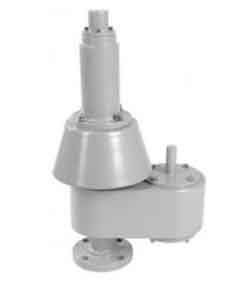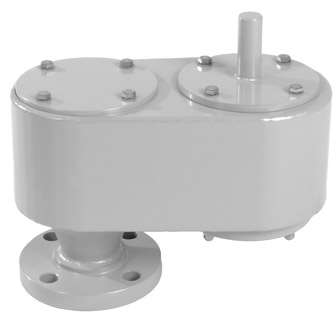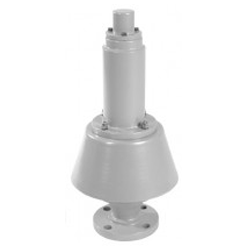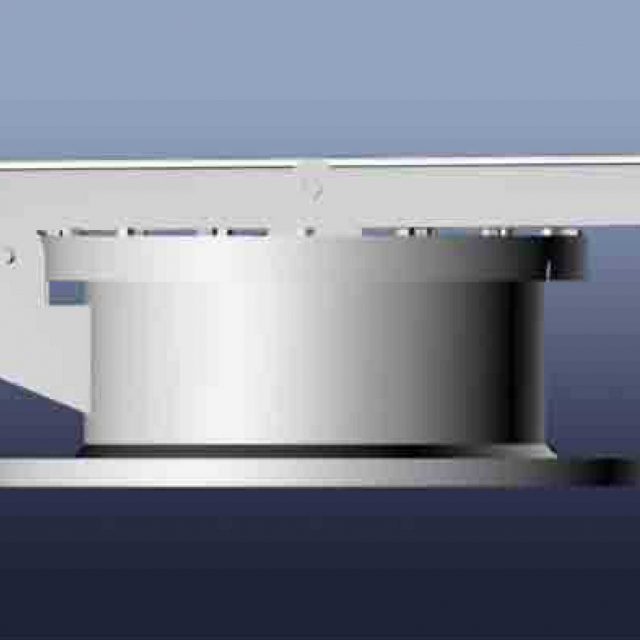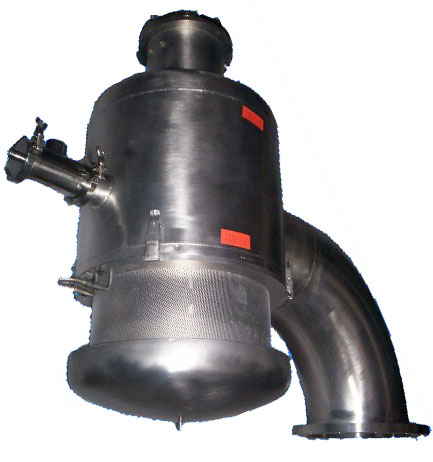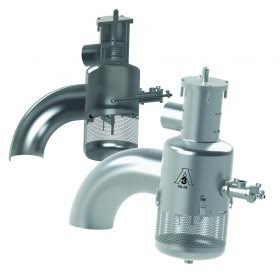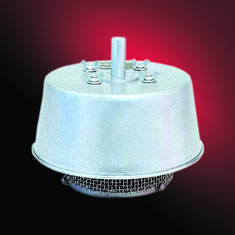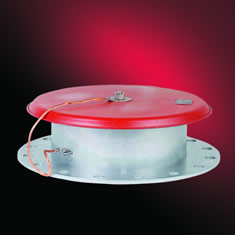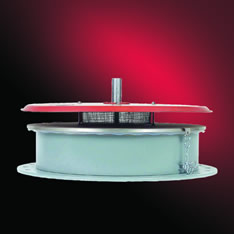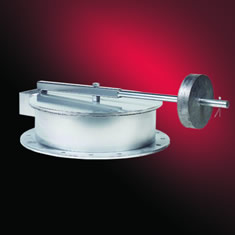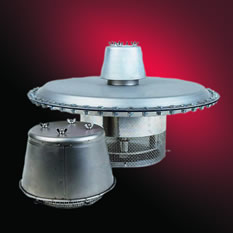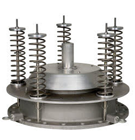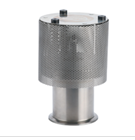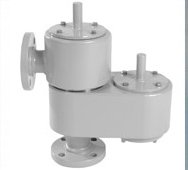Conservation Vent
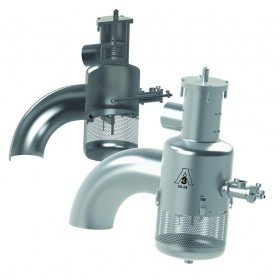
Over-pressure or excess vacuum can occur in a tank by many different means. The most common causes are filling/emptying of the vessel and thermal expansion/contraction of the gas in the vapour space due to changing atmospheric conditions. There are many other causes which are specific to each application and should be assessed in a risk analysis.
How does a conservation vent work?
A conservation vent works by using a preset weight or spring which acts on a pallet which seals the vessel. When the pressure or vacuum conditions cause a force which exceeds the weight of the pallet/closing force of the spring, the pallet lifts allowing gas/vapour/air in or out – “breathing”. The exact pressure/vacuum setting of this opening point is determined by the weight of the pallet/force exerted by the spring on the opening area of the vent.
What are the different types of a conservation vent?
Conservation vents are usually Vacuum relief, Pressure relief or a combination of the two. The relief is either to atmosphere or piped-away to eg. a scrubber or oxidiser unit if the vapours are hazardous.
What are inline conservation vents?
Inline conservation vents are vents where the pressure outlet and/or vacuum relief inlet are piped away. It is more common that the pressure is piped away and the vacuum is to atmosphere.
What are end of line conservation vents?
An end-of-line conservation vent is one where the pressure outlet and/or vacuum inlet breathe to and from atmosphere.
What is the difference between a conservation vent and a pressure/vacuum relief valve?
The difference between a conservation vent and a pressure relief valve is the standard that they comply with. Generally a vent complies with venting standards (API2000/EN ISO 28300) and a pressure relief valve complies with a standard for relief valves (API 620, etc). Relief valves can also be made outside of these standards for specific applications. The maximum settings for vents is much lower than those for relief valves.
How do you size conservation vents?
Conservation vents are sized according to international standards. Ref: API 2000, EN ISO 28300.
What are emergency vents?
Emergency vents is a vent sized for an emergency condition. The most common emergency situation is a pool fire i.e. a fire around and/or under the vessel heating the contents until the contents boil. This is a pressure relief situation.
Which Conservation Vents does Flexachem supply?
Flexachem supply a wide range of Conservation Vents from Pressure and Vaccum Vents to Emergency Vents to Hygienic Vents, inline and end of line conservation vents.
Our manufacturers meet the standards and generally offer a leakage test which exceeds the requirements in the applicable standard. The test is a maximum allowed leakage across the vent seat at a high percentage of the set pressure/vacuum. E.g. <1 SCFH @ 90% set pressure.
If you have a specific requirement in mind, please contact one of our product specialists to discuss your application.
Contact our Venting Team:
Noel Bracken (External Sales) – Tel: 083 0891204
Conor Foley- Tel: 021 461 7206
Products
-
3100 End of Line Conservation Breather Vent
View Product -
B100 – Combined Pressure & Vacuum relief valves
View Product -
B200 – Vacum relief valves
View Product -
B300 – Pressure relief valves
View Product -
B400 emergency combined pressure vacuum relief
View Product -
Ultra clean autonomous vent HSV type
View Product -
Pressure / vacuum safety valve BOG type
View Product -
EMERGENCY PRESSURE VENT
View Product -
EMERGENCY PRESSURE MANHOLE COVER VENT
View Product -
EMERGENCY PRESSURE / VACUUM MANHOLE COVER VENT
View Product -
HINGED EMERGENCY PRESSURE MANHOLE COVER VENT
View Product -
PIN-TECH BUBBLE-TIGHT < 500 PPM PRESSURE RELIEF VENT
View Product


